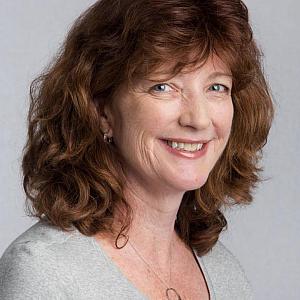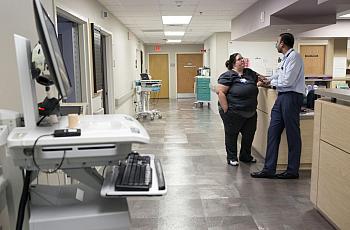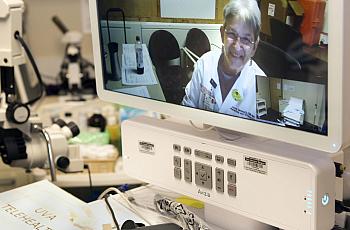
Luanne Rife
health writer

health writer
Ballad Health on Monday announced it would reduce prices for patients without insurance, offer discounts to those who can’t afford their high-deductible insurance plans and use artificial intelligence to determine if patients qualify for free or reduced-cost care.
Two years since the creation of Ballad, the state has yet to release quality, access and financial reports with the public.
This story was reported with the support of the Dennis A. Hunt Fund for Health Journalism, a program of the University of Southern California Center for Health Journalism....

For nearly a year, the former competitors have gathered daily to share information on patients and staffing.

Flossie Horace said she would have been too nervous to care for her grandson without the seemingly simple-looking equipment that allowed her grandson’s nursery to become a sophisticated communication center linked with doctors at the University of Virginia.

Last year, the University of Virginia marked its 1,000th telestroke consultation in its first three years. Thirty-five to 40 patients a month in rural hospitals benefit from specialty care that they wouldn’t otherwise have had.

Even Ballad Health’s most ardent supporters are frustrated with the health care system’s seeming failure to respond to concerns about patient care.

“You understand you can’t change a culture on a dime," a CEO of a local health system told me. "You have to transform a culture over time."

The Federal Trade Commission asked a Vanderbilt University law professor to set the stage for a discussion on state laws that shield merging hospital rivals from antitrust actions.
Ballad Health in October stopped performing surgeries at a Norton hospital, but it is unclear if and when patients or state regulators were notified.